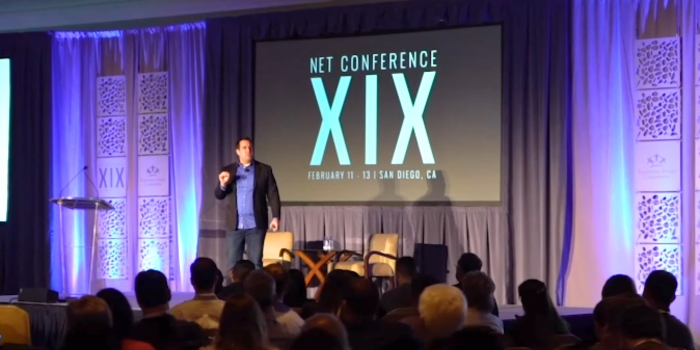When you’re planning a conference, it’s crucial to understand how to captivate and educate your audience. One way to do this is by selecting the right kind of speakers for your event. So, what are the different types of speakers at a conference?
There are primarily two types of speakers you can consider: keynote speakers and plenary speakers. Keynote speakers typically open or close the event and set the tone with motivational or inspiring talks, while plenary speakers offer specialized knowledge and insights, usually speaking to all attendees at once.
Both add unique value and create a dynamic learning environment for your meeting. Recognizing the difference between these two kinds of speakers is essential for curating an impactful and memorable event.
Conference Speakers – General Overviews
Having a clear understanding of different speakers’ roles can enhance the impact of a conference. It’s crucial to know who can deliver what for an effective program.
Keynote speakers often have a broader role than just imparting knowledge. They set the conference’s tone, aiming to motivate or inspire attendees. These speeches often occur at pivotal moments, such as the opening or closing.
Plenary speakers, on the other hand, are subject matter experts who delve into specialized topics. They address the entire audience, offering focused insights and potentially sparking group discussions. Their sessions generally comprise the meat of the conference agenda.
Choosing the right mix of keynote and plenary speakers can make or break your event. Participants in events with notable speakers are allowed to gain invaluable insights, exclusive access to expertise, and a unique opportunity for personal and professional growth. So, making informed decisions in speaker selection is thus paramount for event success.
Why Do You Need Speakers at a Conference?
Speakers are the heart and soul of any conference, providing the content that draws attendees. Organising a successful event depends on understanding why they are necessary.
Stimulate Intellectual Engagement
Speakers foster a rich intellectual environment. They present fresh perspectives that challenge existing beliefs. This prompts attendees to think critically, enriching their conference experience.
Network Facilitation
The presence of esteemed speakers can attract a varied audience. These gatherings encourage networking among professionals and peers. Strong networks can lead to future collaborations and professional opportunities.
Credibility and Branding
Having respected speakers boosts your event’s credibility. It also enhances the brand image of the organizing body. Attendees are more likely to trust and engage with a well-curated, reputable speaker lineup.
Skill Development
Speakers often conduct workshops or training sessions. These are platforms for skill development among attendees. New skills can be immediately applicable, offering real-world value.
Inspiration and Motivation
Inspirational speakers have the power to ignite passion. They share stories of resilience and success that can motivate the audience. This emotional impact can serve as a catalyst for personal and professional growth.
By incorporating a mix of keynote and plenary speakers, you can provide a well-rounded experience. It’s not just about filling time slots but about offering valuable content that attendees will find both informative and inspiring.
What are the Different Types of Speakers at a Conference?
Speakers are the pillars of any conference, bringing content that draws and educates attendees. Let’s explore the different types of speakers you may encounter at such an event.
Professional Speakers
Professional speakers make a living by sharing their expertise. They often speak on a range of topics, tailoring their message for each audience. These individuals usually have a strong stage presence and refined delivery techniques.
Keynote Speakers
Keynote speakers set the tone for the entire event. They usually open or close the conference, offering motivational or thought-provoking insights. Their role is to engage the audience and create an overarching narrative for the event.
Seminar Leaders
Seminar leaders focus on a narrow subject matter and go deep. These sessions often require preregistration due to their specialized nature. They offer a more intensive learning experience for attendees interested in the topic.
Workshop Facilitators
Workshop facilitators guide attendees through interactive sessions. These may involve group activities, discussions, or hands-on experiences. The goal is to impart skills or knowledge that attendees can practically apply.
Trainers
Trainers provide educational content, often with a focus on skill development. They often use a structured curriculum to guide their sessions. Attendees leave with new abilities they can immediately employ in their professional lives.
Industry Speakers
Industry speakers bring insider knowledge about a specific field. They share updates, trends, and forecasts that are pertinent to professionals in that industry. Their insights can be invaluable for keeping attendees up-to-date.
The Entertainer
Entertainers bring a lighter touch to the conference program. They might offer musical performances, comedy routines, or even magic shows. While not educational, they offer attendees a much-needed break and refreshment.
The Combination Program
The Combination Program speakers wear multiple hats. They can switch between roles like trainer, entertainer, and keynote speaker. These versatile individuals provide a varied and rich experience, making the event dynamic and engaging.
You can curate an enriching conference experience by understanding the strengths and purposes of different types of speakers. The right blend ensures your event will be educational, inspirational, and enjoyable for all.
How to Choose the Right Speakers for Your Conference?
The success of your conference depends on choosing the right event speakers. A strategic approach can help you curate an event that resonates with your audience.
Step 1: Define Your Objectives
Start by clarifying the goals of your conference. Are you aiming to educate, motivate, or entertain? Knowing your objectives will guide you in selecting speakers who can deliver the desired impact.
Step 2: Know Your Audience
Conduct a survey or use past data to understand your audience’s preferences and needs. The speakers you choose should align with the interests and expectations of your attendees.
Step 3: Budget Considerations
Allocate a budget for hiring speakers. This will help you identify whether you can afford industry leaders, local experts, or perhaps a mix of both.
Step 4: Check Availability and Accessibility
Contact potential speakers to check their availability on your event dates. Also, consider whether they can attend in person or would need to present virtually.
Step 5: Evaluate Expertise
Assess the expertise and credibility of potential speakers. Look for those who are respected in their fields and have a track record of engaging presentations.
Step 6: Review Presentation Style
Watch past talks or ask for sample presentations to gauge their speaking style. Ensure it aligns with the tone and format you envision for your conference.
Step 7: Discuss Content
Have a preliminary discussion with prospective speakers about the content of their talks. Make sure it aligns with your event’s theme and objectives.
Step 8: Contract and Confirmation
Once you’ve made your selection, get all terms in writing. This should include fees, travel arrangements, and any other logistical details.
Step 9: Promote the Speakers
Utilize social media and other platforms to promote your event speakers. An attractive lineup can boost ticket sales and enhance your event’s reputation.
Step 10: Gather Feedback
After the event, solicit feedback from attendees about the speakers. This will help you evaluate your choices and make informed decisions for future events.
By following these steps, you can ensure that you choose speakers who will enrich your conference, engage your audience, and contribute to a successful event.
Bottom Lines
Choosing the right speakers is an integral part of conference planning, and getting it wrong can result in a lackluster event. So, what are the different types of speakers at a conference?
You have many options, from keynote speakers who set the overall tone to seminar leaders and workshop facilitators who offer deep dives into specialized topics. A well-rounded, impactful event can be created by understanding the unique value each type of speaker offers.
By mixing and matching different types of speakers, you not only enrich the educational content but also enhance the overall attendee experience. Careful selection ensures that your conference becomes a hub of knowledge, inspiration, and networking.







